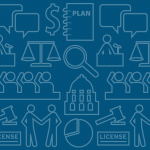FOR IMMEDIATE RELEASE
March 29, 2023
Oakland, CA: The California Third District Court of Appeal has affirmed that the penalty provision of California’s Keep Groceries Affordable Act of 2018 (AB 1838) is unconstitutional. The provision penalizes a city that lawfully enacts a sugary drink tax by taking away that city’s sales tax revenue.
The court affirmed a 2021 trial court ruling in a lawsuit filed in 2020 by Jarvis Fay LLP on behalf of Cultiva La Salud, an organization dedicated to advancing health equity in the San Joaquin Valley, and Martine Watkins, a resident of Santa Cruz who serves on the Santa Cruz City Council. The lawsuit was supported by ChangeLab Solutions and the American Heart Association.
“We are celebrating the strong ruling issued by the court, which affirms what we have known all along: parts of this law are blatantly illegal, and charter cities should not be punished for exercising their constitutionally protected authority to enact policies that improve health and advance health equity,” said Sarah de Guia, JD, chief executive officer of ChangeLab Solutions. “It is imperative that local governments throughout California and the country be permitted to enact policies that protect their residents’ health and advance health equity.”
In 2018, the beverage industry pressured the California legislature into passing a law that prevents cities from enacting new sugary drink taxes until 2031. The legislature enacted the law under the threat of an industry-funded state ballot initiative that, if passed, would have drastically curtailed local governments’ ability to raise revenue for critical services like public health, education, and transportation.
This appellate court decision removes the possibility that a California charter city could lose its sales tax revenue should it choose to move forward with a sugary drink tax. The decision does not affect the underlying prohibition of local sugary drink taxes. Nevertheless, the elimination of this financial threat is a victory for voters in charter cities, who can now engage with their fellow residents and elected officials about whether sugary drink taxes are appropriate for their community without risking their city’s sales tax revenues should voters ultimately adopt a tax.
“The appellate court ruling means that cities across California can once again enact public health policies like sugary drink taxes without fear of financial ruin,” said plaintiff Martine Watkins, who lives in Santa Cruz and serves on the Santa Cruz City Council. “Revenues from sugary drink taxes are being reinvested directly in the health of local communities around the state. We’re now one step closer to more California residents being able to reap the benefits of these types of policies.”
“We have clear evidence that sugary drink taxes are an effective strategy for protecting the health of children and families and countering the beverage industry’s unjust marketing and sales practices,” said Genoveva Islas, MPH, founder and executive director of Cultiva La Salud. “This ruling is a victory for all Californians and clears a path for community health advocates and local governments to confront health inequities driven by sugary drink consumption.”
The issue of state interference extends well beyond sugary drink taxes. Other state governments are interfering with local governments on a wide variety of issues that affect community health and well-being — such as minimum wage increases, equitable housing policies, and broadband access. Such state interference often occurs at the behest of corporations or industry-backed special interest groups. The harms associated with these abuses of preemption — especially for communities of color, women, and families with low income — are well documented.
“This law is part of a broader nationwide trend of punitive preemption in which states are punishing localities for exercising their authority to govern their own affairs," said Sabrina Adler, JD, vice president of law at ChangeLab Solutions. Local governments are often on the front lines of enacting equity-promoting public health policies, and they should continue to have the authority to do so. This ruling sends a powerful message to the corporate interests behind much of this preemption: you cannot sidestep the law to benefit your bottom line.”
This opinion will become final 30 days after posting, at which time the state will have 10 days to request review from the California Supreme Court. If the state pursues this option, the Supreme Court would then have two months to decide whether to hear the case. If the state does not appeal or the Supreme Court denies review, the opinion is final.
# # #
ChangeLab Solutions is a nonpartisan nonprofit organization that uses the tools of law and policy to advance health equity. We partner with communities across the nation to improve health and opportunity by changing harmful laws, policies, and systems. Our interdisciplinary team works with community organizations, governments, and local institutions to design and implement equitable and practical policy solutions to complex health challenges. For more information, visit changelabsolutions.org. Follow ChangeLab Solutions on Twitter, LinkedIn, and Facebook.
Media Contact:
Sabrina Adler
Vice President of Law
sadler@changelabsolutions.org
510-302-3380, ext. 730

